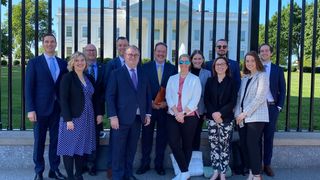From 1-6 May, a United States Studies Centre (USSC) delegation travelled to New York City and Washington DC for a series of meetings, roundtables and conferences with government, corporate and think tank stakeholders. The USSC delegation had 12 members, including the USSC Chair, CEO, COO and the directors of the research major programs as well as their junior staff. The Centre sought to upscale its knowledge on US politics and policy issues at the moment and put the Centre on the radar of the US policy community, while strengthening ties between our different programs and identifying opportunities for further collaboration. Significant progress was made across the board.

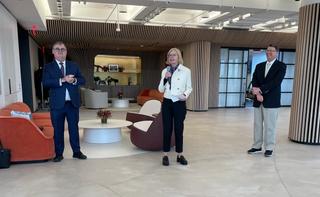
New York
Monday, 1 May
The delegation met with its parent body, the American Australian Association (AAA), at their new headquarters in New York City. AAA hosted a roundtable with the delegation and a range of corporate and government stakeholders: United States, Australia and a new geopolitics. Each research area across the USSC provided an update on key alliance issues in their remit, from interpretation of Australia’s new Defence Strategic Review to the Indo-Pacific Economic Framework and competition with China. This roundtable was followed by a reception with new Consul General Heather Ridout.
Washington DC
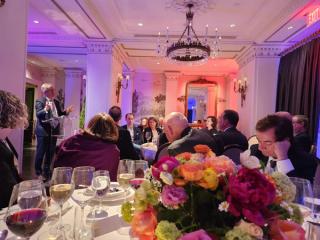
Tuesday, 2 May
After individual meetings in Washington DC, on the first evening the Centre was hosted by the Australia America Council with their members and representatives of the Australian Embassy in Washington DC.
Wednesday, 3 May
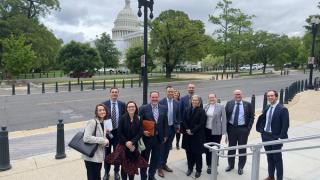

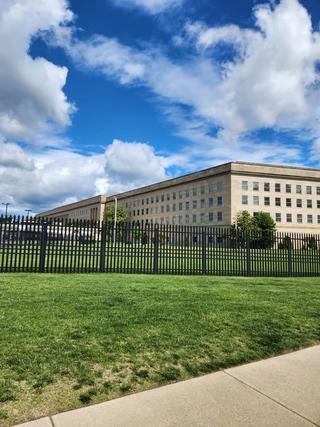
This was a day where the delegation pulled out all the stops. The team started the day with a large briefing with staff from the House Foreign Affairs Committee, a number of whom visited the Centre in 2022. The delegation met with them the day after Chairman McCaul released a statement on continued efforts to implement AUKUS and ahead of their hearing on modernising US arms exports and AUKUS on 10 May.
The team then headed over to the Pentagon for two meetings with Department of Defence officials on everything from AUKUS and ITAR to the future of alliances. After this, they met with officials from the Department of State ahead of Australia’s hosting of the Quad Leaders Summit on 24 May. After some individual meetings, the team wrapped up the day with a dinner hosted by the Center for Strategic and International Studies (CSIS).
Thursday, 4 May
The delegation started the day with a half-day junior scholars conference with research associates and fellows from different think tanks sharing their insights and learnings – equally about their areas of expertise as well as swapping notes about different think tank experiences. After this, USSC co-hosted a conference with CSIS on Allies and Geopolitical competition in the Indo-Pacific region. Across two panel discussions, scholars from both institutions took a deeper look at geopolitics (and whether regional alliances and partnerships are fit for purpose) and economic security in the context of regional competition. USSC panellists included Director of Foreign Policy and Defence Prof. Peter Dean, Director of Emerging Technology Dr Miah Hammond-Errey, Director of Economic Security Hayley Channer and Senior Economic Adviser Dr John Kunkel. Dr Michael Green moderated the first panel.
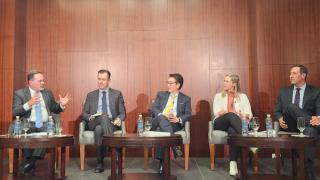
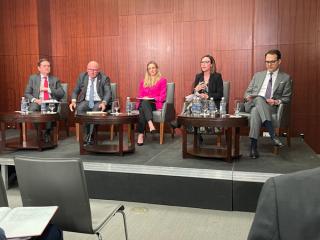
Friday, 5 May
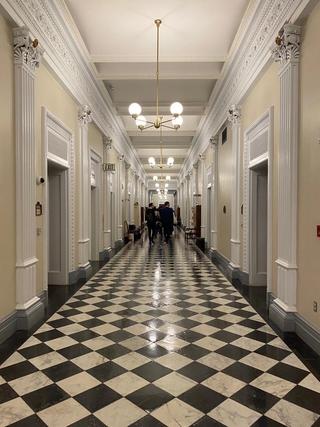
Perhaps saving the best for last, the delegation started their final day in a meeting with representatives of the White House National Security Council and ended their final official meeting of the delegation in a roundtable discussion with new Australian Ambassador to the United States Kevin Rudd. The upcoming Quad Leaders Summit in Sydney, AUKUS and trade featured heavily in both discussions and the delegation was able to share their insights about the DSR and regional dynamics.
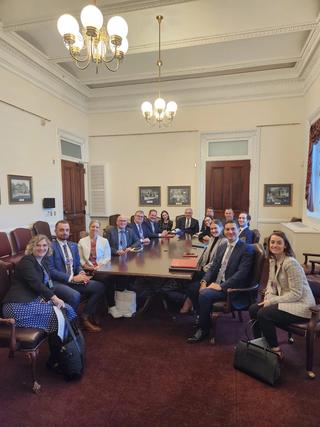
Across all the meetings, some common themes emerged from the discussion, including:
- AUKUS is very much front of mind for the US Government and action is moving at a rapid place to pursue both the optimal pathway for nuclear-powered submarines and the delivery of Pillar II advanced capabilities.
- Challenges around ITAR and the risks it poses for AUKUS are not lost on the government and teams across different branches are navigating pathways to find the best solution.
- The upcoming Quad Leaders Summit in Sydney is highly anticipated and areas of keen interest for regional partners, especially the Pacific Islands.
- Momentum for international collaboration is picking up and USSC is very well placed to tap into its convening power to make progress toward solutions for some of the trickiest challenges facing the alliance at this time.
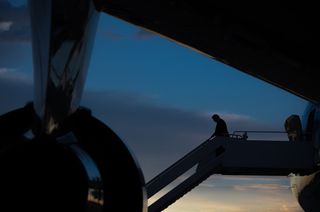
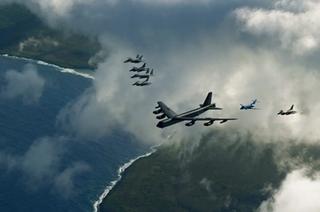


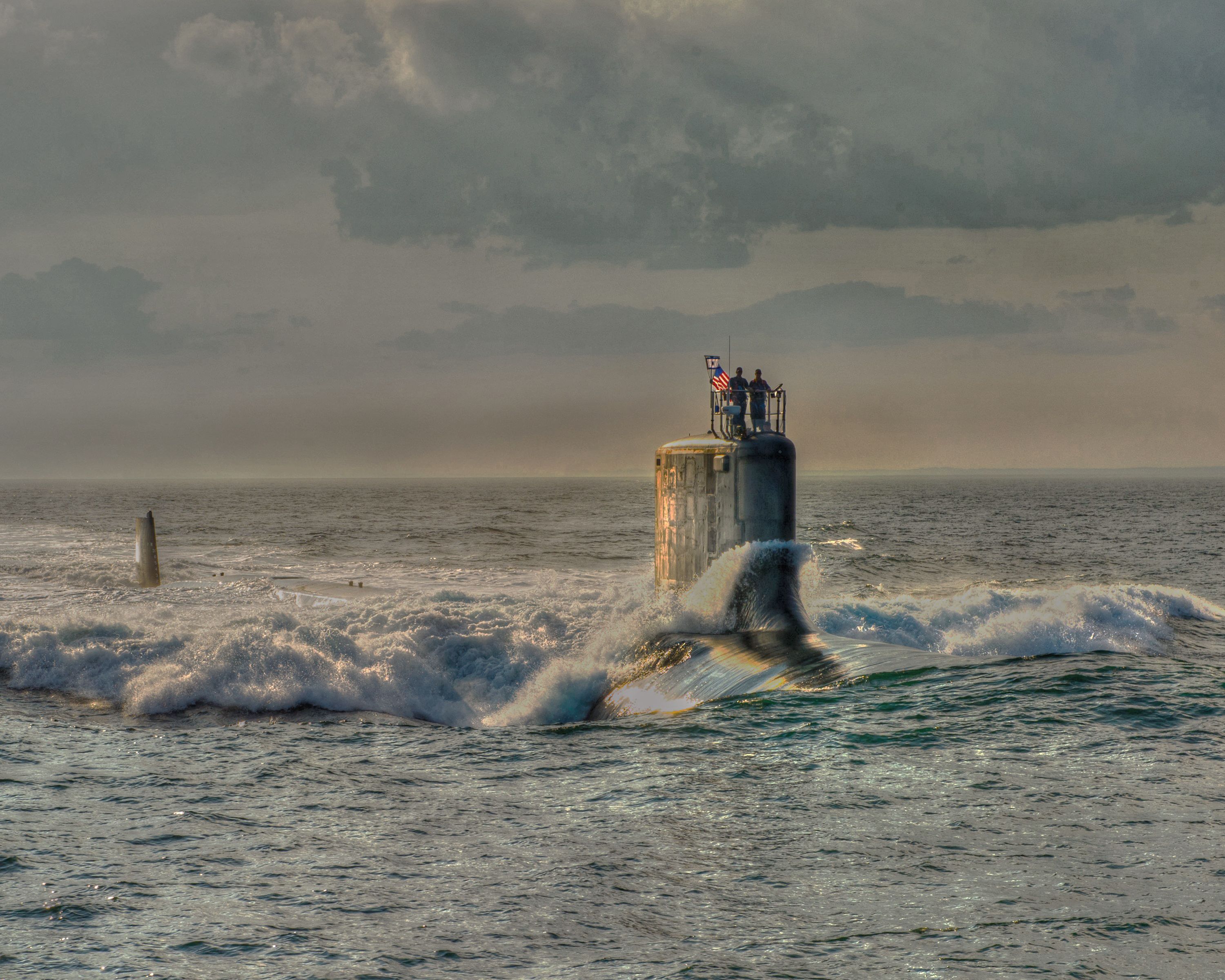.jpg?rect=0,80,3000,1989&fp-x=0.5&fp-y=0.44772296905517583&w=320&h=212&fit=crop&crop=focalpoint&auto=format)
